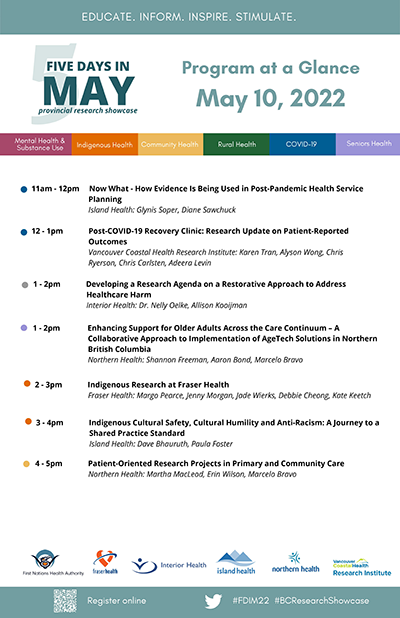Read about day two events and register.
-
11:00 a.m. | COVID-19 | Now what: how evidence is being used in post-pandemic health service planning
B.C. health authority planners are engaged in continuous improvement to ensure planning practices and processes support organizational mandates to create an integrated and well-coordinated health system that meets the health needs of British Columbians. Supported by MSHR BC, the Health System Planners Community of Practice conducted a survey of B.C. health authority planners to assess the inclusion of patient and public voice in systems planning, evidence needs of health system planners and collaboration and knowledge sharing of evidence during transition from pandemic to endemic health system states. Survey results will be presented and implications of the findings discussed.
Learning objectives:
- To understand inclusion of patient and public voice in health system planning, and opportunities to improve public engagement.
- To understand evidence needs of health system planners during transition to endemic states.
- To understand opportunities and challenges for knowledge sharing related to evidence used for health system planning within and between health authorities in B.C.
Speakers:
- Glynis Soper, director, Health System Planning, Island Health
- Diane Sawchuck, RN, PhD, lead, Evidence, Evaluation and Knowledge Translation, Island Health
View the session recording.
-
12:00 p.m. | COVID-19 | Post COVID-19 recovery clinic: research update on patient-reported outcomes
Discover the research being conducted at B.C.’s post COVID-19 recovery clinics and learn about what our researchers here have brought to light. This session features two presentations on the impacts of COVID-19, post-recovery, followed by an open panel discussion led by Dr. Adeera Levin.
Speakers:
- Adeera Levin, MD, FRCPC (moderator), professor of medicine, Head Division of Nephrology at UBC; consultant nephrologist, Providence Health Care/St. Paul’s Hospital; senior medical lead, Integration Clinical and Academic Networks, Providence Health Care
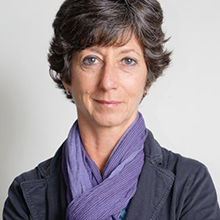
- Karen Tran, MD, FRCPC, clinical assistant professor, Division of General Internal Medicine, UBC; co-director, Hypertension Clinic, Vancouver General Hospital
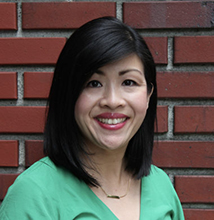
- Alyson Wong, MD, FRCPC, MHSc, respirologist, St. Paul’s Hospital; clinical instructor, Department of Medicine, UBC
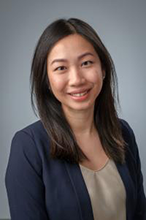
- Christopher Carlsten, MD, MPH, director of the Centre for Lung Health; professor and head, Respiratory Medicine Division, UBC
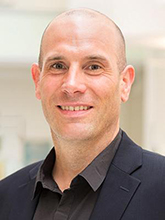
- Chris Ryerson, MD, FRCPC, professor, Medicine, UBC; director, St. Paul’s Hospital; head, Division of Respiratory Medicine, Providence Health Care

View the session recording.
- Adeera Levin, MD, FRCPC (moderator), professor of medicine, Head Division of Nephrology at UBC; consultant nephrologist, Providence Health Care/St. Paul’s Hospital; senior medical lead, Integration Clinical and Academic Networks, Providence Health Care
-
1:00 p.m. | Practical skills | Developing a research agenda on a restorative approach to address health care harm
High rates of patient safety incidents continue to impact patients, family members and health care providers. Responses to health care harm vary across Canada, often leaving those involved feeling that the approach was inadequate and healing is difficult. A restorative approach, based on a set of principles, builds relationships, shares harm-related experiences, and focuses on fairness and learning. We developed a research agenda on using a restorative approach in health care in British Columbia. Five areas were identified: conceptualizing a restorative approach; demonstrating the need and making the case; design and implementation of a restorative approach; barriers and facilitators to implementation; and evaluation and sustainment. Given this nascent area of research, our results will facilitate future research in this area to address health care harm and promote healing.
Speakers:
- Nelly Oelke, PhD, RN, associate professor, School of Nursing, UBC Okanagan
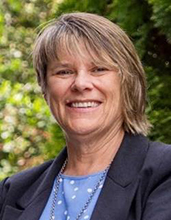
- Allison Kooijman, MA, PhD student and patient partner, School of Nursing, UBC Okanagan
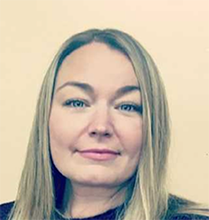
- Nelly Oelke, PhD, RN, associate professor, School of Nursing, UBC Okanagan
-
1:00 p.m. | Senior's health | Enhancing support for older adults across the care continuum
There is an immediate need to implement community specific solutions that mitigate the gap between technologies to support aging (AgeTech) and the people who are aging in northern and rural communities, their care partners and the health system that supports them. The Centre for Technology Adoption for Aging in the North (CTAAN) was established in 2019 with the goal to bridge this gap and make AgeTech more accessible to enhance the lives of those aging in northern and rural communities. CTAAN is built on a partnership between the Northern Health Authority, the University of Northern British Columbia and AGEWELL - Canada’s technology and aging network. Through our partnered activities in northern B.C., CTAAN aims to streamline the process for the adoption of technology through collaborations with local residents, researchers, companies and Northern Health Authority stakeholders.
In this presentation, we will share the development of the research partnership and describe our approach to support research initiatives across northern B.C. and beyond. We will highlight our collaborative process and showcase examples of how our research projects support the piloting, adaption, implementation and sustainability of new and emerging AgeTech to break the barriers towards the adoption of technologies to help older adults in northern and rural B.C. to age in place.
Speakers:
- Shannon Freeman, PhD, health services researcher and social gerontologist
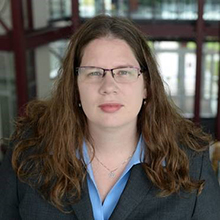
- Aaron Bond, executive lead, Elder Program
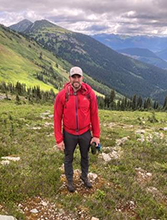
- Shannon Freeman, PhD, health services researcher and social gerontologist
-
2:00 p.m. | Indigenous health | Indigenous health research in Fraser Health
Developing Fraser Health protocols for respectful research and evaluation involving Indigenous peoples: why, how and what’s next
This presentation will:
- explore the harmful impact of health research and evaluation on Indigenous communities;
- discuss the importance of Indigenous-led frameworks and allyship; and
- summarize the Fraser Health Indigenous Cultural Safety and BC SUPPORT Unit Fraser Centre initiative to develop protocols for respectful and meaningful Indigenous health research and evaluation.
Speaker:
- Margo Pearce, PhD, research and evaluation specialist, Fraser Health
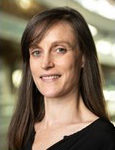
- Jenny Morgan, MSW, RSW, EdD, assistant teaching professor, School of Social Work, University of Victoria
Carefit in Communities
As we age, the incidence of falls increase. Many programs address strength and balance but a program is only as effective as the uptake. Many seniors become less mobile, tire easily and experience a variety of conditions such as aching joints - all of which become barriers to participation in exercise. Carefit is an exercise program for older adults focusing on fall prevention. Individuals can be trained in Carefit to deliver this program for older adults. This presentation will focus on introducing the components of Carefit, how the training works, who it is for, the benefits of it and some of the research behind it.
Furthermore, we will be talking about the CIHR Knowledge mobilization grant application, and the idea of applying for the grant in order to adapt the Carefit training in a culturally meaningful way. The goal is to bring this training to care-staff of Indigenous communities in the Fraser Valley East for sustainability and consistency of programming within Indigenous communities.
Speakers:
- Debbie Cheong, Osteofit provincial coordinator
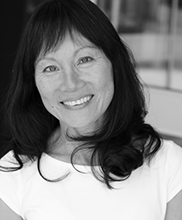
- Jade Wierks, Indigenous Elders program coordinator, Fraser Health
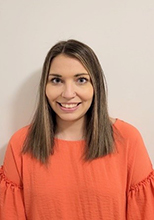
View the session recording.
-
3:00 p.m. | Indigenous health | Indigenous cultural safety, cultural humility and anti-racism
In direct response to the findings and recommendations of the In Plain Sight report, the British Columbia College of Nurses and Midwives (BCCNM) developed a new practice standard to better support Indigenous clients and practitioners. Learn more about their inclusive approach and ongoing work to address harms experienced by marginalized groups.
Learning objectives:
- To discuss BCCNM’s engagement and collaboration with Indigenous clients, Indigenous nurses and midwives, Indigenous partners and the College of Physicians and Surgeons of BC; to create the Indigenous Cultural Safety, Cultural Humility, and Antiracism Practice Standard focused on setting clear expectations for nurses and midwives.
- To discuss BCCNM’s work on the learning resources being developed to support and guide nurses and midwives, to understand and apply the standard.
- To share the learnings from the experience that BCCNM will take forward in its future work.
Speakers:
- Paula Foster, RN, MSN, regulatory practice consultant, British Columbia College of Nurses and Midwives
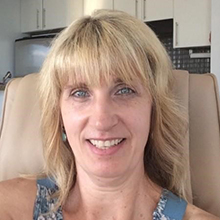
- Dave Bhauruth, RPN, MHA nursing policy consultant, British Columbia College of Nurses and Midwives
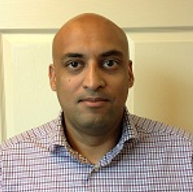
- Krista Allan, RN, BN, MSA, vice president, Knowledge, Practice and chief nurse executive, Island Health
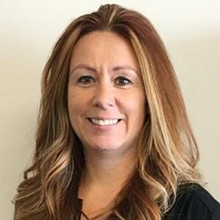
View the session recording.
-
4:00 p.m. | Community health | Patient-oriented research projects in primary and community care
Primary care transformation underway in B.C. is fostering changes to accessibility, coordination and continuity of care. The way that patients are able to seek care and the way teams are able to provide primary care continue to evolve. As the research agenda for supporting and sustaining primary care expands, including patients as partners requires thoughtful strategies to make sure that collaboration and engagement happen in ways that support improving outcomes for patients and communities. This presentation will review considerations for including patients in research, drawing from recent primary and community care research in northern and rural communities.
Speakers:
- Erin Wilson, assistant professor, School of Nursing, UNBC; family nurse practitioner, Interdisciplinary Primary Health Care Clinic, Prince George
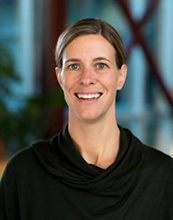
- Martha MacLeod, professor, Schools of Nursing and Health Sciences, UNBC; Northern Health – UNBC Knowledge Mobilization Research Chair
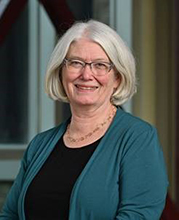
- Erin Wilson, assistant professor, School of Nursing, UNBC; family nurse practitioner, Interdisciplinary Primary Health Care Clinic, Prince George

